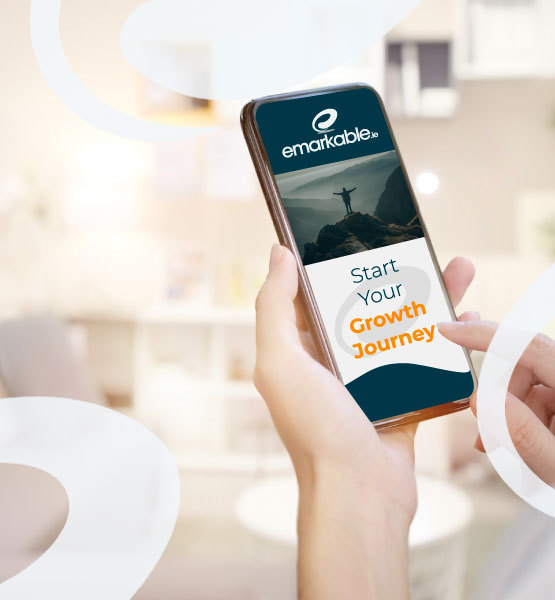Online Reputation Management
Reputation Monitoring Versus Management
With the Internet at our fingertips, people are searching online to learn more about a brand, product, service prior to making a purchase. They go to their favourite search engine, type in a few keywords and click on the first few links that appear. Though consumers will likely visit your site for general information (if your site is ranked), they are more likely to view third party, review sites (discussions, forums, blogs) to formulate an opinion. So what type of content are these third party sites publishing about your brand? What are people saying about you on the social networks? What is the overall “rating” of your company online? Paying attention to social conversations will help you find out.
What is Online Reputation Monitoring?
The abbreviation ORM is becoming widely used among online marketers today. It stands for Online Reputation Management, which will be discussed in thorough detail shortly. But before we deep dive into this concept, let’s first define the difference between reputation monitoring and reputation management and how the two relate to each other. These two terms are often used interchangeably even though they have very different meanings.
Online reputation monitoring is the act of listening to online conversations. It involves using programs and setting up alerts to stay aware of when your company, brand, slogan, product/service or company spokesperson are mentioned online. Reputation monitoring is important because customers are becoming more vocal about their questions, comments and dissatisfaction with products and services, and social media gives them a channel to share their opinions with the world. Reputation monitoring, the act of listening to brand mentions online, is only a small component of reputation management.
What is Online Reputation Management?
Online reputation management is a much more complex strategy than just monitoring online conversations. Not only does it involve listening to social conversations, but it includes responding to comments and interacting with your online audience to influence their opinions about your brand. Reputation monitoring is about listening whereas reputation management is about participating.
Simply put, Online Reputation Management (ORM) combines traditional marketing and public relations with search engine marketing; it involves managing the search engine results to protect your company’s brand reputation from negative exposure online. Keep in mind that online searchers rarely view more than 2 pages of search engine results. So high rankings for good publicity are the ultimate goals, which will in turn push any bad publicity down the search engine listings and out of public view. Here are some benefits to implementing an ORM strategy in your business:
- Improve customer satisfaction by communicating directly with dissatisfied customers
- Salvage customer relationships by implementing service recovery to those who are unhappy
- Increase your brand awareness by engaging in dialogue with your customers
- Reduce marketing costs by interacting with customers directly
- Learn more about your customers’ expectations and how you can better meet them
Monitoring Your Online Reputation
Since people tend to be more honest when sharing their feedback online, the Internet is a great way to capture feedback on a product or service. The only downside is you are more likely to get negative feedback than positive. People who received very good service will rarely write about it, whereas people who received bad service will tell everyone and also write about it.
What To Monitor Online
When it comes to social media, there are specific elements you should be monitoring:
- Company name/brand – Your company brand is the most important asset to your company. You should always be monitoring it and ensuring that it is well represented at all times.
- Products / services – It’s important to monitor your products and services as well because they could be brands of their own. This way, you can see what people have to say about your offering.
- Personal name – Keep a close watch for any mentions of your senior executives (ie: president, CEO, etc.) and anyone who would be considered a “spokesperson” for your company.
- Marketing message – Taglines and slogans unique to your company should be monitored as well. If those marketing messages are followed by “sucks”, you’ll want to know about it.
- Your competition – It’s a good idea to keep up with any news or mentions of your competitors. Staying updated on your competitors’ online reputation is as beneficial as knowing your own.
- Your industry – Keep watch of industry trends and technological advances in your sector. This could shed light on some of your customers’ changing needs and help you better serve them.
- Your intellectual property – Your intellectual property is what sets your company apart from the competition. It defines what a company is. Along with a company’s brand, its intellectual property is its most fragile asset and must be protected.
Where to Monitor
Within this section, you will find a list of tools and resources that will help you monitor your online reputation. Have a look at the various tools available and determine how they can be implemented in your strategy. You should be using those tools to monitor the above elements on:
- Search engines
- Google Places
- Blogs
- Discussion forums
- Reviewsites
- News sites
- Social networks
- Social bookmarking sites
- Directories
- Media sharing sites
Rating and Review Sites
With a click of a button consumers can leave and read reviews on any product or service simply by visiting a review site. Reviews also appear on Google Places listings when someone searches for a local business. So keep this in mind when you are monitoring your brand. Review sites should not be overlooked. Some review (and complaint) sites to bookmark are: Yelp.com, MeasuredUp.com, Blagger.com, PlanetRate.com, ConsumerReview.com, Epinions.com, Sutori.com, RateItAll.com.

